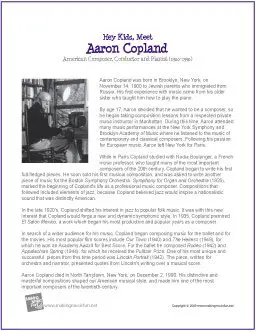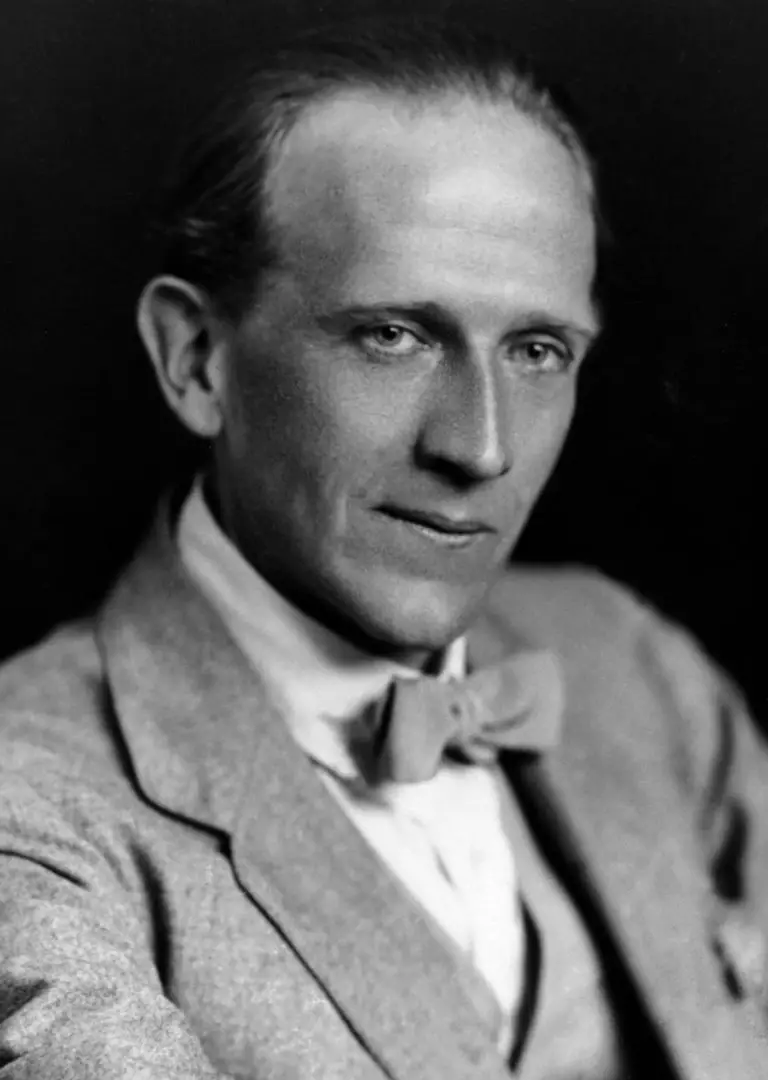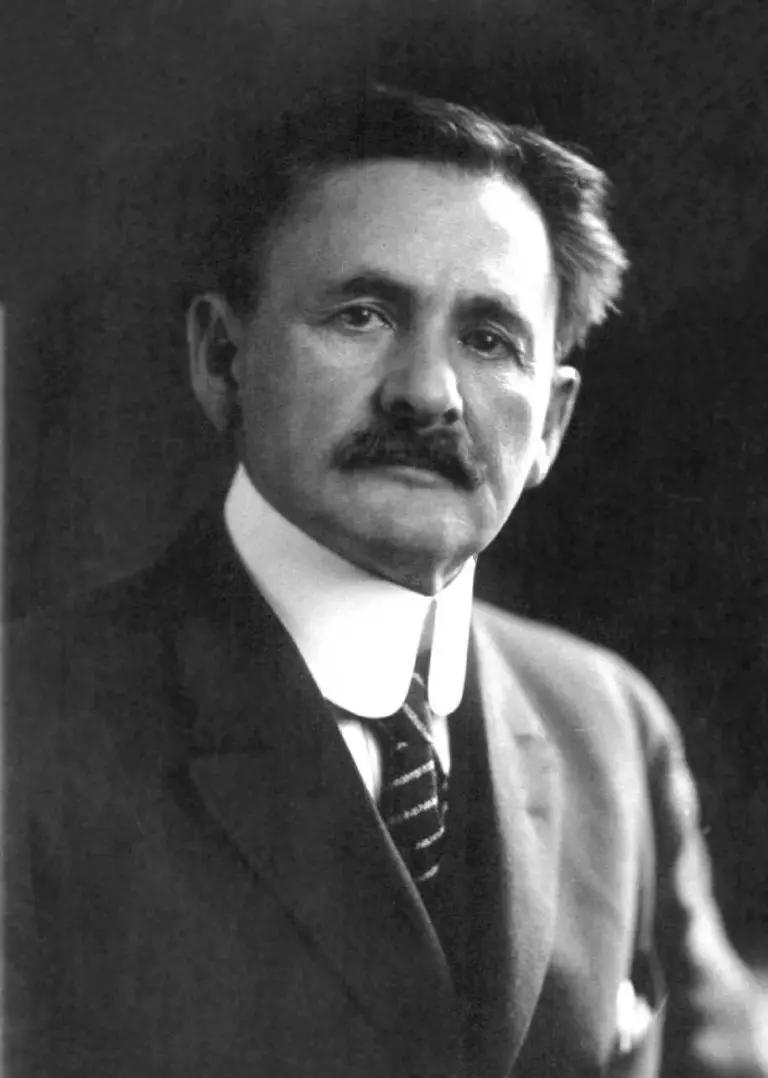Aaron Copland Biography: Inspiring Journey Of A Musical Powerhouse
Delving into the world of symphonic sagas and ballet scores, we encounter Aaron Copland, an iconic figure in the arena of American classical music. Born in Brooklyn, New York in 1900, Copland’s life was a harmonious blend of innovation and intrinsic talent. This Aaron Copland Biography peels back the curtain of time to offer a closer look at the architect of the distinctive “American Sound” in orchestral music.
Known for creating a unique symphonic landscape, Copland’s legacy is deeply etched in the annals of classical music. His oeuvre, characterized by rhythmic patterns and distinctive harmonies, not only led to his recognition as a paramount composer but also as an illustrious music teacher.
Stay tuned as we traverse through the stave of Copland’s life, exploring his journey, his influences, and his enduring contributions to the world of music. From his early years to his later life, this biography promises a rich symphony of a musician’s life immersed in creativity and dedication.
Aaron Copland Biography: A Journey Through the Life of a Musical Legend
American composer Aaron Copland’s life was as dynamic and diverse as the music he created. A beloved figure in American classical music, Copland’s contributions to the genre have been instrumental in shaping its contemporary face. This article delves into a thorough exploration of Copland’s life: from his humble beginnings in Brooklyn to his enormous success on a global stage.
Aaron Copland: Early Years and Musical Beginnings
On November 14, 1900, in Brooklyn, New York, Aaron Copland was born into a family of Lithuanian-Jewish immigrants. His childhood home was filled with music, as both his parents and siblings showed a deep appreciation for it. His father, Harris Morris Copland, ran a department store, while his mother, Sarah Mittenthal Copland, was a homemaker who nurtured her son’s early fascination with music.
Copland’s introduction to music came through his older sister Laurine’s piano lessons, which he would listen to with captivated attention. By the age of 11, Copland had begun writing melodies of his own, exhibiting a precocious talent that would later bloom into a brilliant career. He began formal music training at the age of 13, studying theory and composition under Rubin Goldmark in New York City.
European Sojourn and Musical Development
In the early 1920s, Copland set sail for France to attend the newly opened American Conservatory at Fontainebleau. Under the tutelage of Paul Vidal and Nadia Boulanger, Copland honed his skills as a composer. Boulanger, in particular, encouraged his experimentation with varying musical styles and helped him to shape his unique sound.
During his time in Paris, Copland also developed affiliations with the intellectual and artistic avant-garde of the era, including a close friendship with famed writer Gertrude Stein. His three years in Europe were pivotal in his development as an artist, providing him with the intellectual and creative stimulation that would influence his work significantly in the coming years.
Copland’s Return and Rise to Fame
Upon returning to America in 1924, Copland was keen on forging a distinctive American sound in classical music. His early compositions, such as the Symphony for Organ and Orchestra (1924) and Music for the Theatre (1925), exhibited a modernist flair and were met with critical acclaim.
In the 1930s, amid the Great Depression, Copland’s music took on a decidedly populist tone. Pieces such as “El Salon Mexico” (1936) and “Billy the Kid” (1938) resonated with the American public, with their accessible themes and emotive power. With works like these, Copland’s fame grew, and he was increasingly seen as the leading voice of American music.
Legacy and Awards
Copland continued to compose, conduct, and teach until his retirement in the late 1970s. He was known for his generosity, frequently helping young composers navigate the music industry. His influence extended to every corner of American music, leaving an indelible impact on the country’s musical landscape.
The breadth of his work and his contributions to American music were recognized numerous times throughout his career. He received the Pulitzer Prize for Music in 1945 for his piece “Appalachian Spring”, one of his most popular compositions. In 1960, he was awarded the Presidential Medal of Freedom by President Lyndon B. Johnson. In 1986, he received the National Medal of Arts. He was also awarded with an honorary doctorate from Harvard University.
Final Years
Copland passed away on December 2, 1990, leaving behind a remarkable legacy that resonates to this day. The music he created, his efforts to develop a uniquely American sound in classical music, and his contributions to the musical community are a testament to his life-long passion and unwavering dedication.
In conclusion, Aaron Copland’s life was a testament to his passion for music and his desire to craft a uniquely American sound. His life’s work left an indelible mark on the face of classical music and continues to inspire generations of musicians and music-lovers alike.
Keeping Score | Aaron Copland and the American Sound (FULL DOCUMENTARY AND CONCERT)
Frequently Asked Questions
Who were some significant influences on Aaron Copland’s music?
Aaron Copland was influenced by a variety of sources, including jazz and folk music. He also drew inspiration from his teacher, Nadia Boulanger, a notable French composer, conductor, and teacher. His time in Paris studying under Boulanger had a profound impact on his work.
What are some of Aaron Copland’s most celebrated works?
Aaron Copland is best known for his ballet scores which include “Billy the Kid”, “Rodeo” and “Appalachian Spring”, the latter of which was awarded the Pulitzer Prize for Music. Furthermore, his orchestral works, such as “Fanfare for the Common Man” and his Symphony No. 3, are renowned pieces within the classical music canon.
What contributions did Aaron Copland make to the world of music?
Aaron Copland left a substantial mark on the world of music through his creation of a distinctive American sound in classical music, his fostering of new talent through his teaching and writing, and his ability to bring classical music to the wider public. He also played a significant role in shaping music for ballet, film and orchestra.
What was Aaron Copland’s early life like?
Born in Brooklyn, New York, Aaron Copland was the youngest of five children. His love for music was nurtured from a young age as he began learning piano from his older sister. Despite his family’s lack of musical background, Copland pursued his passion and eventually went on to study music formally in Europe.
How did Aaron Copland influence later composers?
Aaron Copland’s impact on later composers is evident in his introduction of a uniquely American sound to the classical music realm. His incorporation of jazz elements and contemporary harmonies significantly influenced composers after him. Additionally, his writing and teaching aided in shaping numerous other composers’ understanding and crafting of music.
Final Thoughts
Aaron Copland’s biography serves as a testament to his talent and dedication to music. His significant contributions, marked by the creation of iconic compositions, have shaped the course of America’s classical music landscape.
Diving deep into his meticulous craft, Copland’s biography underlines his unwavering commitment to innovation. His work, a blend of modernist and populist elements, broke boundaries and set new standards in music.
In conclusion, Aaron Copland Biography is not just about a great composer. It is a journey through an exceptional life dedicated to music, a road paved with integrity and unwavering passion, leaving an enduring influence on American classical music.






